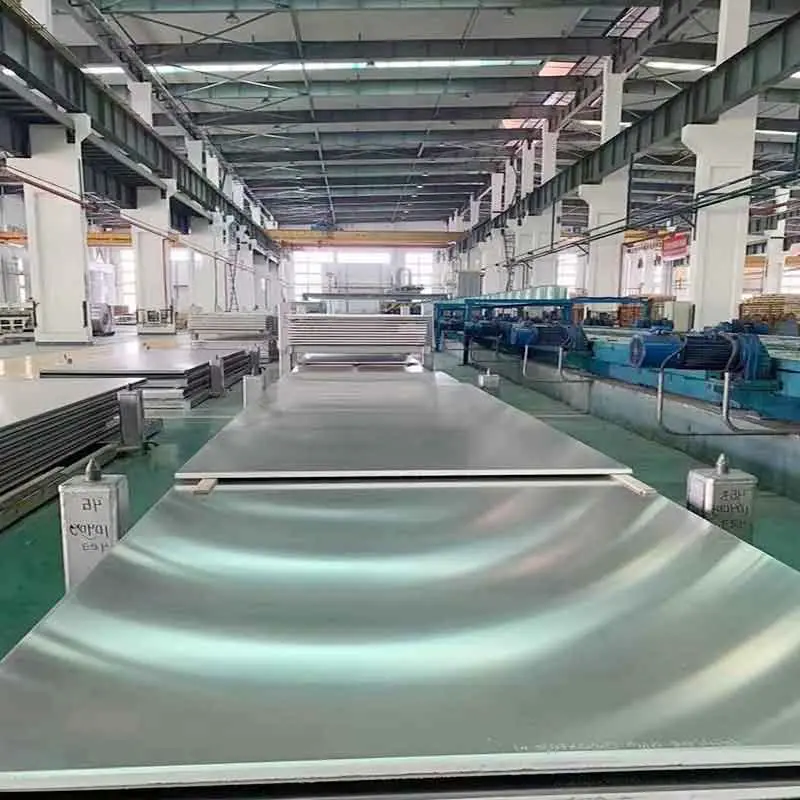
Petrochemical and chemical container equipment manufacturing:
Petrochemical and chemical container equipment manufacturing is the traditional application field of titanium steel composite plate materials and has always been the largest industry. Titanium has excellent stability in various acidic, alkaline and salt environments in the chemical industry. In addition, titanium steel composite plates are also indispensable materials in petroleum refining and chemical plants. Titanium has unique corrosion resistance to substances such as chlorine dioxide, chlorous acid, and chlorite, and has particularly important application value in bleaching equipment in textile printing and dyeing, papermaking and other industries.
Marine and chloride environment:
Titanium and titanium alloys have excellent resistance to seawater, chloride solutions and fluid erosion. In salt production, the use of titanium steel composite plates as evaporation chamber materials can effectively reduce corrosion, prevent salt from forming on the evaporation tank wall, extend the production cycle, improve the quality of salt products, and greatly reduce the cost of salt plant equipment.
Seawater desalination: In the field of seawater desalination, titanium and titanium alloys have excellent resistance to seawater, chloride solution corrosion and fluid erosion, and are ideal materials. In addition, titanium is non-toxic and harmless, making titanium steel composite plates an ideal choice for seawater desalination equipment.
Titanium steel composite plates
Nuclear power equipment manufacturing:
In nuclear power equipment manufacturing, thick composite plates (composite thickness ≥ 8mm) and wide titanium steel composite plates (single plate area ≥ 20m2) are the main materials for condenser tube plates. This type of material is in great demand and has a very broad application prospect due to its unique performance and durability.
Titanium steel composite plates are also used in paper mill bleaching treatment tanks, sewage treatment plants' harsh sodium hypochlorite and hydrochloric acid treatment tanks, etc. Titanium has good corrosion resistance, less ion dissolution in seawater environment, non-toxic and harmless, and no pollution to the environment, making it the preferred material for marine structures.
Titanium has excellent corrosion resistance in flowing seawater and is an ideal anti-corrosion material for marine structures. At present, there are two ways to use titanium: the first is to composite titanium plates with organic anti-corrosion materials to make composite cladding materials; the second is to weld the titanium steel composite plate cladding on the new structure. Titanium steel composite plates have been used for more than 40 years, mainly for condenser tube sheets, etc. In addition, their application in marine civil engineering has also begun to attract attention, bringing new opportunities for marine civil engineering. These composite plates effectively play the excellent corrosion resistance of titanium and the strength of steel, achieving the best balance between performance and cost. There is still a lot of room for development in this field in the future.
Titanium steel composite plates have excellent corrosion resistance and strength, and are ideal materials for manufacturing equipment in corrosive environments. With the continuous improvement of the production process of titanium steel composite plates, the application of titanium steel composite plates will become more extensive and common.
Titanium steel composite plates have excellent corrosion resistance and strength, and are ideal materials for manufacturing equipment used in corrosive environments. With the continuous improvement of the production process of titanium steel composite plates, their application is expected to become more extensive and common.
Please give us a message
Our company currently mainly deals in various types of plates: stainless steel aluminum composite plates, copper aluminum composite plates, copper steel composite plates, stainless steel plates, copper plates, aluminum plates, etc. The composite plates can be divided into double-layer composite, three-layer composite, and five-layer composite, with a wide range of applications and strong durability.
